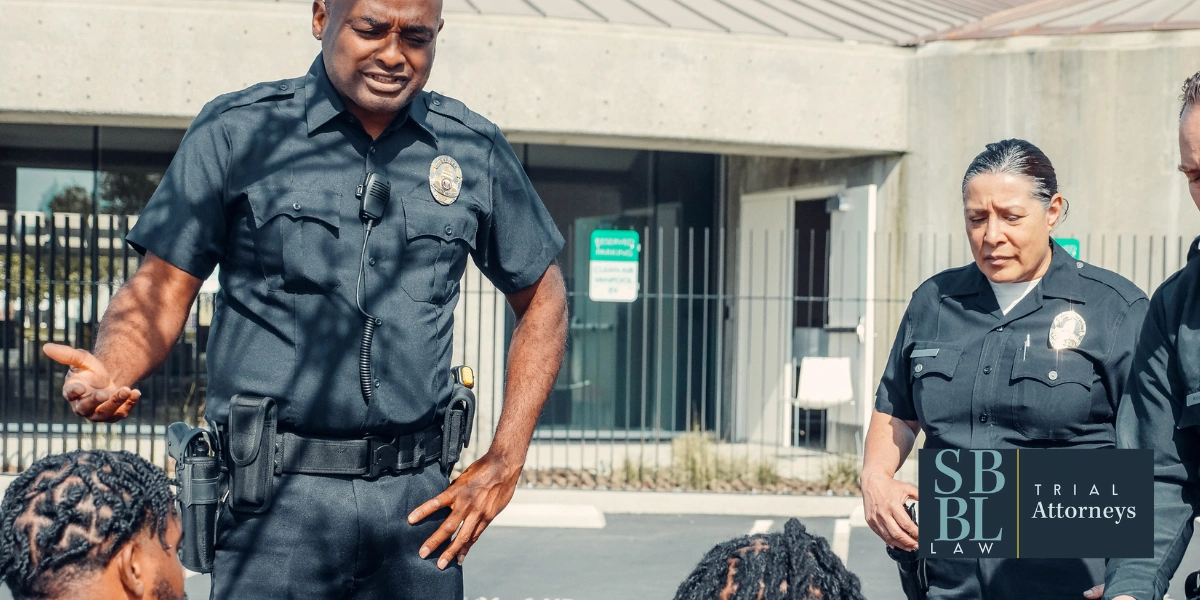|
|
Last Modified on Aug 05, 2025

Barnes v. Felix reinforces the Graham v. Connor standard by clarifying that police use of force cases must be evaluated based on the totality of circumstances, not just the “moment of the threat,” correcting the Fifth Circuit’s narrow time-focused approach. The Supreme Court emphasized that earlier events and circumstances may inform how a reasonable officer would interpret and respond to later situations, requiring courts to consider the full context leading up to force decisions rather than isolated moments. The decision has significant implications for police litigation by reaffirming split-second judgment standards while exposing officers to the growing “officer-created jeopardy” theory, which argues officers forfeit their right to use force if their prior actions contributed to the threat. Though courts frequently reject this theory as inconsistent with Graham, it creates legal uncertainty and potential liability for officers who may be second-guessed for routine decisions like initiating pursuits or engaging non-compliant subjects, even when following training and department policy.
The U.S. Supreme Court’s recent decision in Barnes v. Felix reaffirms a key constitutional principle in cases where law enforcement officers are accused of excessive use of force: use of force cases must be judged based on the totality of the circumstances—not just the “moment of the threat.”
Reaffirming the Graham v. Connor Standard
In Barnes, the Supreme Court corrected the Fifth Circuit’s narrow focus on the seconds before the shooting—a view inconsistent with Graham v. Connor, a seminal Supreme Court case, which requires courts to consider the full context surrounding an officer’s decision to use force, not just a snapshot in time. That limited lens from the Fifth Circuit was inconsistent with Graham v. Connor, which instructs courts to evaluate the reasonableness of an officer’s use of force based on the totality of the circumstances facing the officer at the time without the benefit of hindsight.
As the Supreme Court in Barnes, explained, “While the situation at the precise time of the shooting will often matter most, earlier facts and circumstances may bear on how a reasonable officer would have understood and responded to later ones. Prior events may show why a reasonable officer would perceive otherwise ambiguous conduct as threatening, or instead as innocuous.”
In other words, courts must consider what led up to the decision to use force — not just what occurred in the seconds before. The Barnes decision clarifies that even the Fifth Circuit’s “moment of the threat” analysis must always be analyzed under the totality of the circumstances and cannot be limited to a strict time limit that only considers whether the officer was in danger at the moment.
In reaffirming the foundational principles in Graham, the Court reemphasized that courts’ analyses must reflect the realities of policing based on the totality of the circumstances—split-second judgments made in uncertain, tense, rapidly evolving conditions—not a post-hoc review with the benefit of hindsight.
Addressing the “Officer-Created Jeopardy” Theory
While Barnes reaffirmed the proper constitutional framework for evaluating the use of force, the Court declined to address an increasingly used yet fundamentally flawed litigation strategy: “officer-created jeopardy.”
This theory claims an officer forfeits the right to use force if a prior decision by the officer “created” or contributed to the threat. But that’s not the law. It’s speculative, not grounded in any constitutional or statutory standard, and relies on hindsight—the very approach Graham rejects.
Despite this, some experts continue to push the theory in court, arguing that officers should be held liable based on policies or tactics they were never trained on, and that are not grounded in law. The introduction of a new “officer-created jeopardy” standard would mean officers are being judged on new and evolving standards that shift from case to case.
This is more than just a flawed theory—it’s a dangerous one. It ignores an officer’s training, experience, and perception, and it opens the door to civil liability and criminal prosecution based on subjective opinions, not constitutional principles or statutes. This causes officers to be held to legal theories they were never trained on, that are not codified in statutes, and that have not been solidified in a Supreme Court decision.
While this strategy has been introduced in various cases, it continues to face resistance. Courts frequently reject it as inconsistent with Graham, and even in cases where the theory is admitted into evidence, juries often reject its premise—finding that officers acted in accordance with their training and constitutional standards, not hindsight-driven policy speculation. Additionally, juries often view officer-created jeopardy as unrealistic in light of a police officer’s job: when a situation between a member of the public and a police officer escalates during police contact, police officers are trained to deescalate the situation and use force if necessary to protect themselves and the public from a threat. This is the nature of being a law enforcement officer facing difficult and dangerous situations on the job.
To be clear: the officer-created jeopardy theory remains widely challenged. Courts regularly reject it, and even when it’s allowed in, juries often see through it. But without clearer guidance from the Supreme Court, we’re seeing inconsistent applications across jurisdictions. That uncertainty puts officers at risk—criminally, civilly, and professionally—based on standards that lack legal foundation.
What This Means for Michigan Law Enforcement
For Michigan police officers, Barnes aligns with Sixth Circuit precedent, which already applies a totality of the circumstances analysis. But it also surfaces a growing risk: how “officer-created jeopardy” is being used in litigation—especially in states like Michigan without clear statutory standards for police use of force.
Officers may be second-guessed for decisions like initiating a foot pursuit or engaging a non-compliant subject—even when those actions are consistent with training and department policy. Under this theory, those decisions could be reframed in litigation as tactical errors that forfeit the officer’s right to defend themselves if the situation escalates. This is not the law—but it is a legal argument to be aware of, and it presents real risks for police officers defending against criminal and civil litigation for excessive use of force.
Why Legal Guidance Matters
Barnes v. Felix is more than a course correction. It’s a reminder of the constitutional standard that governs use of force—and a reason to take a closer look at how new and evolving theories are influencing police defense litigation. The gap between constitutional law, agency policy, and legal risk is widening. That space deserves serious attention.
If you’re a department leader, attorney, or officer navigating these legal standards—or concerned about how “officer-created jeopardy” arguments might impact future litigation—feel free to reach out to our Michigan Police Law Enforcement Officer Defense Lawyer at SBBL Law. We welcome the opportunity to discuss how these trends intersect with your agency’s practices and risk profile.
See Related Post:
Understanding the Requirements for Law Enforcement Officers When Providing Garrity Statements







